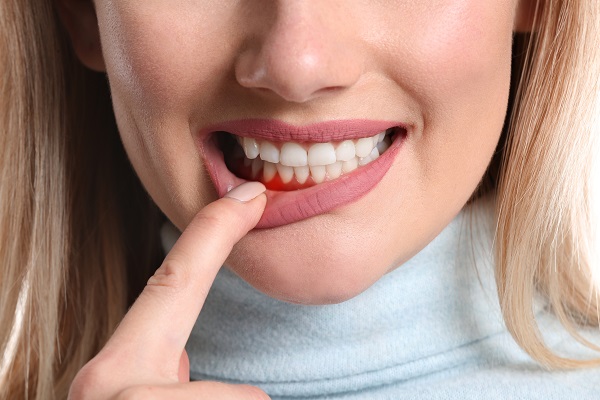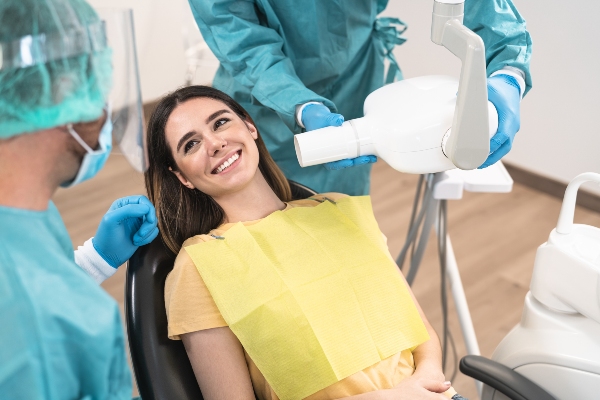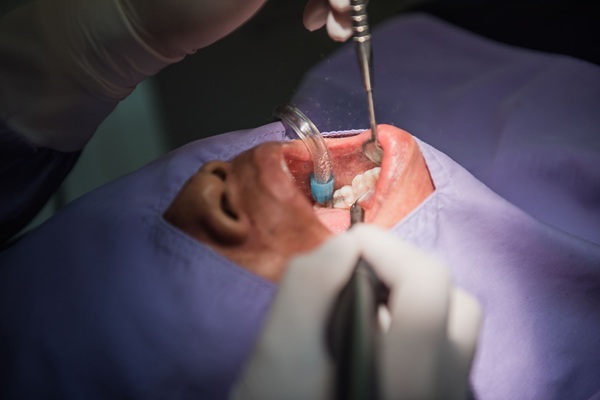Gum Disease Prevention Tips

No one is immune to gum disease. When it comes to oral health, the teeth tend to get more attention than the gums. What many people do not realize is that it is not just about having straight teeth, a white smile, or cavity-free teeth; the gums also need to be in good condition. Knowing the havoc gum disease can wreak on the oral cavity, it is better to take preventive measures to stop the disease from happening.
Preventing gum disease
Gum disease occurs due to the accumulation of plaque along and beneath the gum line. Plaque is a sticky film of bacteria that causes an infection that can damage the gum and bone tissues. Depending on the severity, gum disease can occur as gingivitis or periodontitis, which is the advanced form of the disease. The following are tips for preventing gum disease:
Brush regularly
Patients need to ensure they brush their teeth after every meal, if possible. This helps to clean away food and plaque that may be present around the teeth and gums. The tongue should be cleaned properly as well, as it could harbor bacteria. It is better to use a soft-bristled toothbrush that fits inside the oral cavity comfortably.
An electric or battery-powered toothbrush can help clean plaque and dirt off the teeth more efficiently than manual brushing. The toothbrush or toothbrush head should be replaced every three to four months, or as soon as the bristles begin to fray. When getting toothpaste, patients should consider buying one that contains fluoride and has the ADA’s seal of acceptance. After that, the flavor and color of the toothpaste can be according to personal preference.
Floss
Flossing is important, at least once every day. Flossing helps to remove plaque and food debris that is between the teeth or in hard-to-reach areas inaccessible when brushing. There is no need to have a specific time for flossing; regardless of the timing, the most important point is to undertake the process meticulously and regularly.
Visit the dentist for dental cleanings
Early detection of gum disease symptoms is possible if patients visit a dental office regularly. This will allow the dental professional to treat the condition promptly before it worsens. Professional cleaning is the most effective way to clean hardened plaque from the teeth or debris that might have been missed when brushing or flossing. In the early stage of gum disease, brushing, flossing, and routine dental cleanings can stop and reverse the progress of the disease.
Use mouthwash
Antibacterial mouthwash is available over the counter. These dental rinses reduce plaque, stop gingivitis, and reduce bacteria in the mouth. Mouthwash also helps to clean food remnants from the mouth, but it should not be a replacement for brushing and flossing unless they are not convenient. The mouthwash should have the ADA seal to show that it has been tested for safety and effectiveness.
In conclusion
When you visit the dentist for a routine checkup, they may also recommend certain lifestyle changes like quitting smoking and reducing alcohol consumption, since these may increase the risk of gum disease. If you would like to know more, book an appointment for a consultation.
Get more information here: https://www.carolinasmilesdentist.com or call Carolina Smiles Family Dental at (828) 884-3702
Check out what others are saying about our services on Yelp: Read our Yelp reviews.
Recent Posts
Smile makeovers are a blanket term for one or multiple procedures that help you achieve your dream smile. From adjusting the positions or replacing teeth to brightening or repairing them, smile makeovers can transform your teeth and self-confidence. Take a look at a few services typically offered to improve your smile.When the teeth shift, they…
Oral surgery is sometimes necessary to correct issues that are beyond treatment from basic restorative or preventive care. A general dentist trained in oral surgery can often provide a variety of in-office procedures, offering both convenience and continuity of care. These treatments are performed in a comfortable setting, and they support long-term oral health, improve…
Are you considering a smile makeover? Read on to learn more. A smile makeover has both cosmetic and emotional value. The psychological effects extend to one’s self-esteem and self-image. According to the American Academy of Cosmetic Dentistry, nearly 99.7% of individuals consider a smile an important social asset. Smiles have a high social value, and…
Adult orthodontics has become an increasingly popular solution for individuals looking to improve their oral health and the smile's appearance. Dental professionals offer a variety of treatment options to address the unique needs of adult patients. The following guide will explore the most common treatments used in adult orthodontics, highlighting their benefits and effectiveness in…


